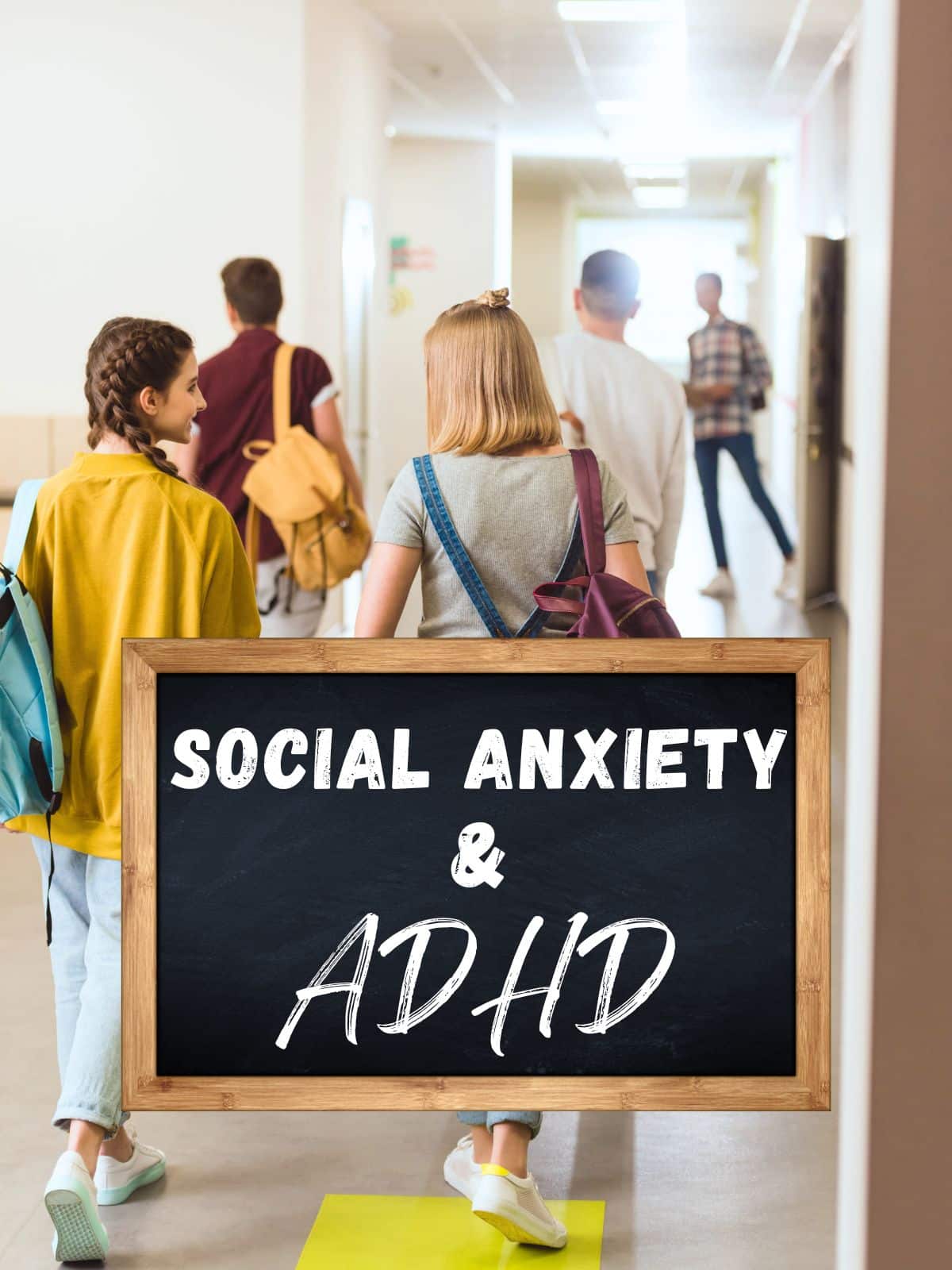The content on this website is for informational purposes only and is not meant to replace professional or medical advice. See our full disclaimer.
Many ADHD people find social situations difficult. If this applies to you, there is nothing wrong with you and it is an issue shared by many others. Some studies have shown as many as 70% of ADHD people have social anxiety.
This is a common concern too with other neurodivergent conditions, such as autism. In this post we'll discuss why social anxiety and ADHD are connected, and tips to manage it.
Jump to:
What is social anxiety?
In this context, “social” includes anything that involves interacting with other people. This means social occasions like parties or meetings, but also day to day conversations and telephone calls, or interacting with other people while shopping or eating out, for example.
If it involves communicating with other people, it is a social activity, and if you are ADHD, it may make you anxious!
Social anxiety can take many forms, and includes becoming anxious before an interaction, struggling to cope and not knowing what to say or how to follow social conventions while with others, and becoming stressed and depressed after an interaction wondering what others thought of you.
This can cause panic attacks, either in anticipation of an event or during the interaction and can make it difficult to build and keep relationships. Social anxiety can also lead to one of the great paradoxes of being neurodivergent – feeling lonely but dreading having to interact with other people.
Why do so many ADHD people have social anxiety?
Like many aspects of neurodiversity, the causes of high rates of social anxiety are not properly known or understood. There may well be genetic and chemical causes. But there are also other factors that probably play a part.
If you have ADHD, chances are that you have felt different for some or all your life. You have seen the world differently, and probably been teased or even bullied as a result.
When your experiences of other people are often bad or harmful, is it any wonder that you become anxious about future social interactions?
If a child burns themselves by touching something hot, we expect them to learn from that experience and not repeat the mistake. Yet when someone has repeated bad experiences with other people, our society still expects everyone to be social. Despite how much they have been hurt by the experience in the past.
One way that you may have dealt with social anxiety is to mask – to try to play the part of someone who is socially adept rather than being your true self when around other people. However, while it may seem helpful in the short term, this strategy can contribute to making social anxiety worse.
Masking is exhausting and can damage your mental health in the long run. Knowing that being social will put you under the mental strain of playing a role may then start to make you more anxious.
A lot of social interaction relies on following unwritten rules that neurodivergent people are often unaware of or find it hard to follow even when they do.
For example, a lot of information in conversations between neurotypical people may be conveyed by tone of voice and body language, while neurodivergent people may find it hard to understand these unspoken messages, both in themselves and others.
ADHD and autistic people are often very literal, so if someone says something but conveys that they mean something else by their tone, we may misinterpret the situation. Repeated experience of this may inevitably increase anxiety about future social interactions.
Finally, many people put a huge emphasis on the importance of eye contact when speaking to others, while those of us with ADHD find this incredibly difficult to maintain, particularly if we also want to listen carefully to what is being said. All of these factors can make social interactions difficult and increase anxiety about future occasions.
Tips for managing social anxiety and ADHD
Interaction with other people is an essential part of life. While you may choose to keep it to a minimum, many of us crave human contact even though it also makes us anxious. There are several ways that you can tackle this.
Firstly, recognise that this is an issue for you, that it is quite common, and that there is nothing wrong with you or anything to be ashamed of. The first step in addressing something is always to recognise that you need to stake steps to address it.
Next, consider when your anxiety is at its worst, and see if this coincides with the social interactions which are most important in your life. If you have social anxiety, interactions are likely to be energy intensive for some time, so it is important to prioritise your engagement.
Many day-to-day tasks that would in the past have required personal contact, like banking, shopping, and paying bills, can be dealt with online or by text, leaving your energy free for more important matters.
It can also help to make those closest to you aware of your anxiety and preferred communication styles. We all have individual preferences in many aspects of our lives, and communication is no different. Real friends will understand that while you love spending time with them in person, you also have times when ADHD and anxiety combine to make you prefer to stay in touch by text or email.
Having prioritised, you may still need help to address social anxiety, and there are several forms that this can take. Your doctor may be able to help with medication or counselling, and there may be support groups available – it is always hugely affirming to meet others facing a similar struggle.
Other options that could help include meditation, journalling, or adapting routines to keep you on track rather than frozen from anxiety.
Conclusion
Social anxiety is real, can be crippling, frequently impacts ADHD people and is nothing to be ashamed of. But with help, planning and support, it can be managed and overcome.
You do not have to be the life and soul of the party to be worthwhile – quiet, reflective people are just as important as everyone else. Be you, and do not let your fears control you.






We'd love to hear from you